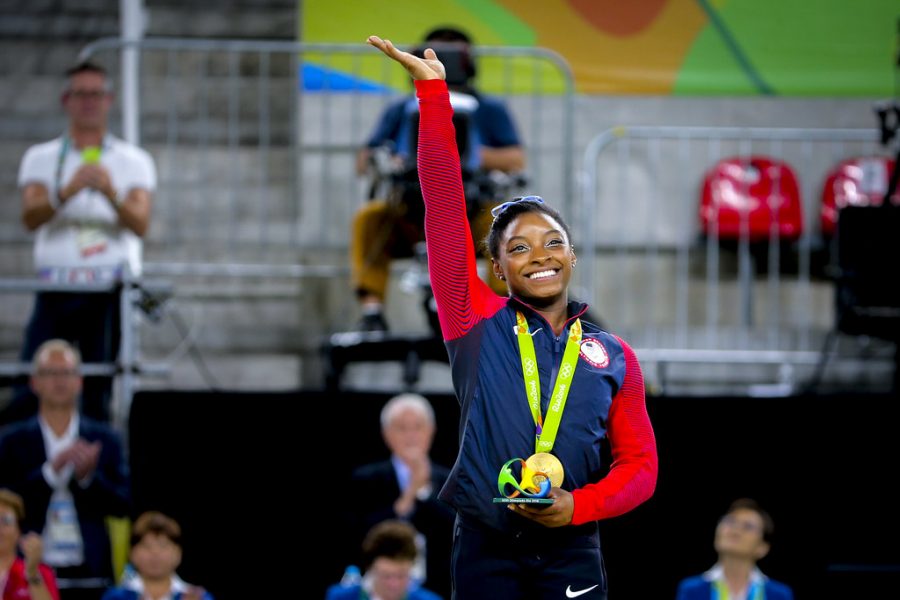Simone Biles withdrawals from Olympics
Mental health effects athletes
Simone Biles withdraws from events in the Tokyo 2020 Olympics, for mental health reasons.
On July 28, 2021, gymnast Simone Biles withdrew from the Olympic individual all-around competition in the 2020 Tokyo Olympics. That also included the event final for vault, uneven bars and the team final. She withdrew for mental health reasons, which sparked the conversation about the crushing pressure that is placed on Olympic athletes and many athletes in general.
Biles is the most decorated gymnast in the world championships history. She has won four gold medals, one silver and two bronze medals in the Olympics —a total of 32 Olympic and world medals— leaving her with the title of the most medals won by a gymnast in the Olympic Games. Being a world-renowned athlete comes with its ups and downs, one of the downs being a strain on mental health.
Mental health affects athletes all around the world, from high school athletes to Olympic medalists. During the COVID-19 period, many people’s mental health was also strained due to the influx of not interacting with people.
After her withdrawal, she opened up about the situation and her struggle with mental health on her Instagram story.
“I didn’t have a bad performance and quit. I’ve had plenty of bad performances throughout my career and finished competition,” Biles said, “I simply got so lost my safety was at risk as well as a team medal.”
She had been struggling to perform some of the moves she needed for her upcoming competition while practicing, which led her to feel unsafe about performing and also took a toll on her mental health.
“I don’t think you realize how dangerous this is on hard/competition surfaces,” Bilessaid, “Nor do I have to explain why I put my health first. Physical health is mental health.”
Both her physical and mental health were at risk at the time, and Biles withdrew on that basis. There are mental health specialists and supporters that travel along with team USA —and other teams— who are there to support the athletes. She also said she was not in the right mind to compete. By putting her mental health first, she helped other competitors feel more comfortable speaking up about their mental health.
Biles’ withdrawal affected many people all around the world, including high school athletes. Sophomore Daisy Lewis, a gymnast who competed for Freedom last year and now with Arcadia Gymnastics in Chippewa, gave her thoughts on the situation.
“When I heard about Simone’s withdrawal from the Olympic Games, I was initially pretty upset to hear that the best gymnast there ever was, wasn’t going to be competing this year,” Lewis said, “The further I looked into it and talked about the situation with my coaches and teammates, it made us realize that even professionals go through mental blocks just like us young athletes.”
As an athlete, there are many mental challenges that are placed in front of you. The act of practicing can even be stressful because perfection doesn’t come right off the bat. The climb to one’s best can be just as hard as performing in front of a crowd. This climb can lead to mental blocks and breaks because striving for perfection does not come easily.
Biles’ withdrawal from the Olympic games was an eye-opener for many about the mental health effects that athletes feel on a daily basis. Many were empowered by her act, and it gave a new outlook on how people view professional athletes today.
“This topic has changed and helped many young gymnasts for the better, and I have even had some little girls at the gym talk about how much they look up to the older girls, not knowing how much that really means to us, and that is exactly why I will continue to look up to the best gymnast there ever was, Simone Biles,” Lewis said.



